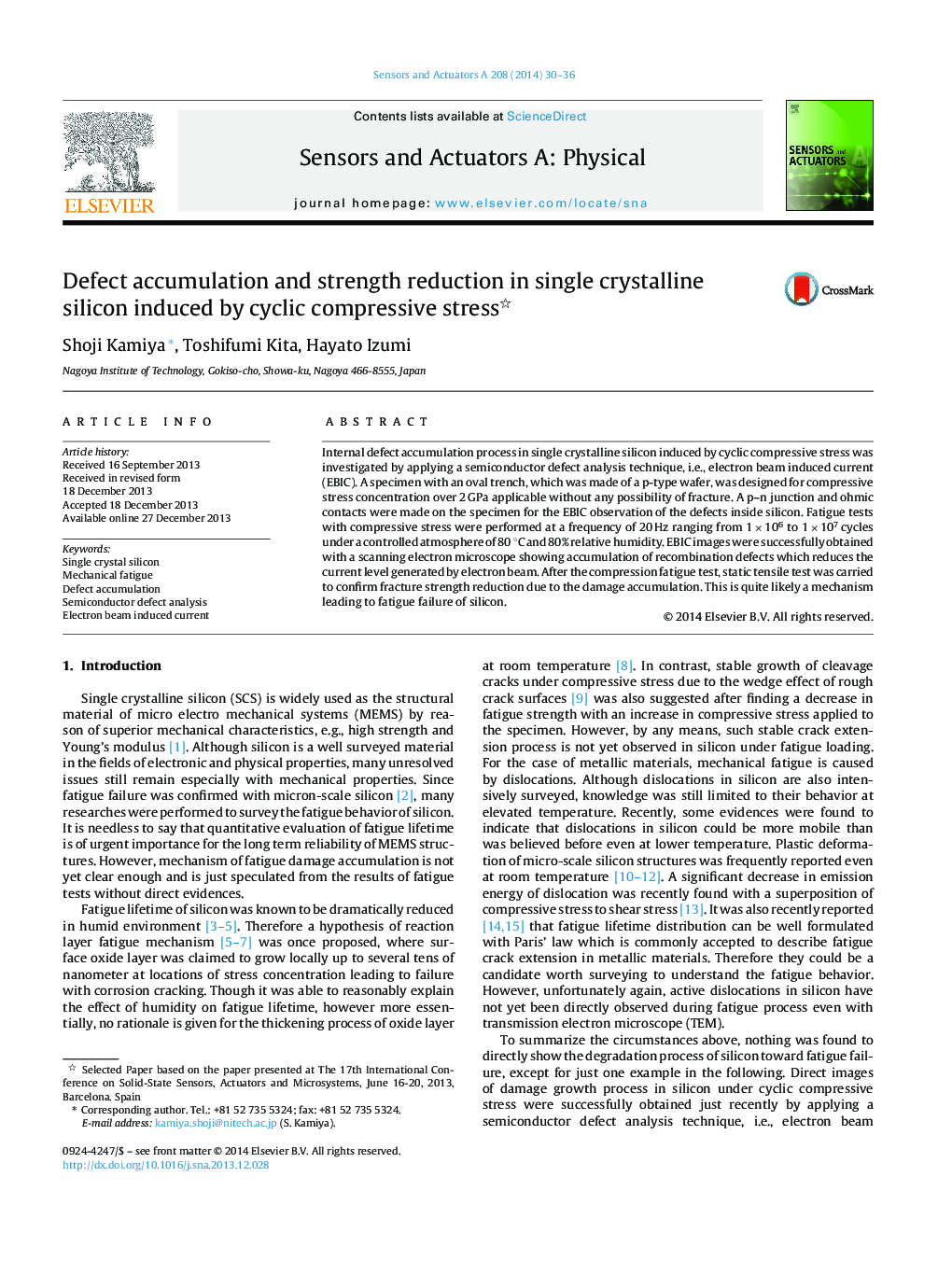| Article ID | Journal | Published Year | Pages | File Type |
|---|---|---|---|---|
| 739437 | Sensors and Actuators A: Physical | 2014 | 7 Pages |
•Mechanical fatigue test of crystalline silicon was performed in harsh environment.•Recombination defects accumulated by high compressive cyclic loading were clearly observed using electron beam induced current.•Residual tensile strength of silicon with recombination defect decreases as compared to strength before fatigue test.
Internal defect accumulation process in single crystalline silicon induced by cyclic compressive stress was investigated by applying a semiconductor defect analysis technique, i.e., electron beam induced current (EBIC). A specimen with an oval trench, which was made of a p-type wafer, was designed for compressive stress concentration over 2 GPa applicable without any possibility of fracture. A p–n junction and ohmic contacts were made on the specimen for the EBIC observation of the defects inside silicon. Fatigue tests with compressive stress were performed at a frequency of 20 Hz ranging from 1 × 106 to 1 × 107 cycles under a controlled atmosphere of 80 °C and 80% relative humidity. EBIC images were successfully obtained with a scanning electron microscope showing accumulation of recombination defects which reduces the current level generated by electron beam. After the compression fatigue test, static tensile test was carried to confirm fracture strength reduction due to the damage accumulation. This is quite likely a mechanism leading to fatigue failure of silicon.
